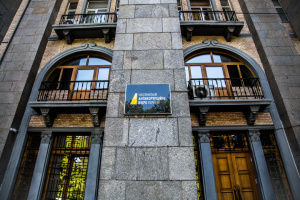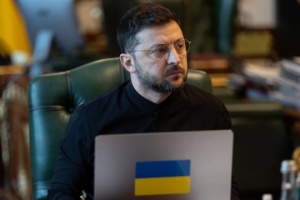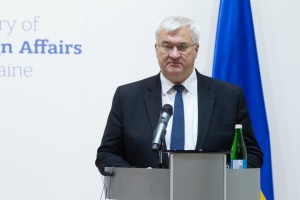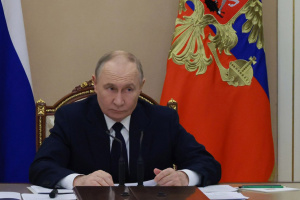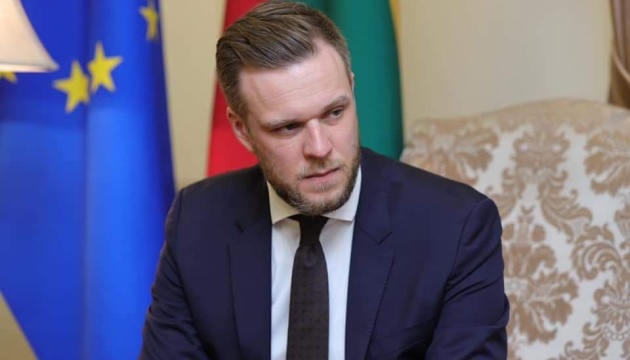
Given Russia threat, NATO better have Ukraine in its ranks - Landsbergis
That’s according to Lithuania’s Foreign Minister Gabrielius Landsbergis, Ukrinform reports.
“Let us not forget – Ukraine has the largest and best battle-hardened army in Europe. They face the enemy NATO was founded to face. If we want to be well prepared to face Russia in the future I would much rather be in an Alliance with Ukraine than without,” Landsbergis wrote on X.
“If we want Ukraine, Europe and the transatlantic area to be secure from an evermore aggressive Russia we have to accept Ukraine into NATO, build up our defences, and thereby bring back respect for the UN Charter and international law,” the foreign minister stressed.
He dismissed the idea of accepting futility of resistance to Russia, believing that fighting back is the most realistic choice.
“Russia is attacking Ukraine not because of a threat, a diplomatic dispute or a broken promise. Russia is attacking solely because, in the Kremlin's view, Ukraine is weaker and therefore attackable. In other words, the attacks would stop if Ukraine was stronger,” notes Landsbergis. “If Russia senses that our support is failing to alter battlefield dynamics (if we don’t send enough or if we set irrational limits on use) then we invite continuation. But if Russians see that our support will never stop, and might increase – their calculations will change.”
Also, if NATO’s deterrence of Russia is credible, it can change the calculations of other would-be aggressors.
The Western objective has to be maintaining a favorable power balance, the top diplomat believes. The most rational way to do this, he adds, is to maintain a constant or increasing weapon supply that would in the short to medium term put Ukraine in a stronger position on the battlefield.
At the same time, Ukraine must be offered collective security guarantees that would be credible enough to keep the power balance in Ukraine's favor in the medium to long term: “I have said many times that without a clear Ukrainian victory there is absolute certainty that Russia will attack again. All previous attacks were initiated on false pretences, so similar excuses will be found in future if Russia ever feels able to restart hostilities.”
As long as there is a credible risk of a renewed Russian attack, large-scale rebuilding will be very difficult, Landsbergis admits, noting that stability would not only attract investment back into Ukraine, but also provide the conditions necessary for refugees to have the confidence to return and rebuild.
“Some are considering security guarantees tailored toward Ukraine on the South Korea / Japan model. But for that to be credible, we will have to involve the US and other major NATO allies anyway, probably also stationing some sort of contingent in Ukraine permanently,” wrote Landsbergis. “For Ukraine, Article 5 could be much quicker and more practical than a specially written agreement. Ukraine is close and already using NATO equipment to great effect, so it would actually be simpler to bring them into NATO than to create something from scratch in parallel.”
He recalled that NATO had been conceived to secure peace in Europe through collective defense against Moscow. “I am saying NATO should do more of what NATO was made to do,” Gabrielius Landsbergis concluded.

